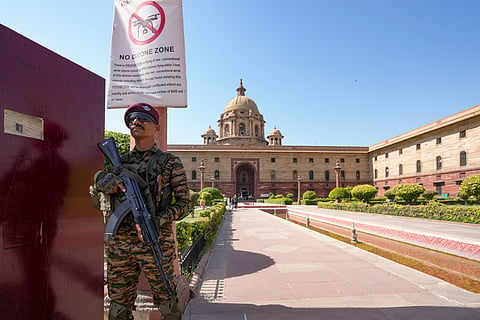India suspends Indus Waters Treaty, shuts Attari border in response to Pakistan
In the wake of the deadly terrorist strike in Pahalgam, Jammu and Kashmir, that claimed the lives of 26 individuals—including a foreign tourist—the Indian government has enacted sweeping measures against Pakistan. The move comes after investigations revealed direct cross-border links to the perpetrators, believed to be affiliated with Pakistan-based terror outfit The Resistance Front, an offshoot of the banned Lashkar-e-Taiba.
The Cabinet Committee on Security (CCS), India's apex body on matters of national security, convened to assess the gravity of the attack and issued a series of stern retaliatory actions aimed at Islamabad.
Indus Waters Treaty Suspended
One of the most consequential decisions is the suspension of the Indus Waters Treaty, a landmark agreement signed in 1960 between India and Pakistan with the mediation of the World Bank. The treaty, which has remained intact despite three wars and decades of hostilities, allocated control over the six shared rivers. India holds rights over the Ravi, Beas, and Sutlej, while Pakistan controls the Indus, Jhelum, and Chenab.
India's Foreign Secretary Vikram Misri, in a press briefing, confirmed the decision to hold the treaty "in abeyance" until Pakistan demonstrates "credible and irreversible" disengagement from supporting terrorism. This is the first time India has taken such a decisive step, despite past provocations including the 2019 Pulwama attack.
Diplomatic and Border Measures
Further escalating the diplomatic pressure, India announced the closure of the Integrated Check Post at the Attari-Wagah border with immediate effect. Pakistani nationals who entered India legally may return via this route, but must do so before May 1, 2025.
Additionally, all SAARC Visa Exemption Scheme (SVES) visas held by Pakistani citizens have been revoked. No new SVES entries will be permitted, and individuals currently in India under this exemption must leave the country within 48 hours.
The government also declared Pakistani defence representatives at their High Commission in New Delhi—including naval and air attachés—as persona non grata. These officials, along with five supporting staff, must exit India within a week. Reciprocal withdrawals will be made by Indian military advisers posted in Islamabad.
By May 1, the total strength of each country's diplomatic missions will be reduced from 55 to 30 personnel.
India Signals Zero Tolerance Policy
Foreign Secretary Misri noted that the terror attack was particularly significant given its timing—just as Jammu and Kashmir successfully concluded local elections and continued on a path of developmental progress. The CCS, he said, is united in its resolve to bring the attackers and their sponsors to justice.
“The pursuit of justice will be relentless,” Misri said, invoking India’s successful extradition of Tahawwur Rana, wanted for his role in the 2008 Mumbai terror attacks, as an example of the country's growing assertiveness in counter-terror diplomacy.
Water Security Implications for Pakistan
Experts have long warned that Pakistan is heading toward a water crisis due to population pressures, climate variability, and mismanagement of existing water resources. The Indus Waters Treaty, therefore, represents more than a diplomatic agreement—it is a lifeline for the country’s agricultural and drinking water needs.
Past Indian threats to suspend the treaty have met with sharp responses from Pakistan, which has historically viewed such moves as tantamount to acts of war. However, this time, India has followed through.
Union Minister for Water Resources C.R. Paatil backed the move, stating, "Prime Minister Modi and Home Minister Amit Shah have shown before that we do not tolerate attacks on our sovereignty. Suspending the treaty is a strong and appropriate decision."
SAARC Visa Programme Curtailment
The SAARC Visa Exemption Scheme was designed to promote regional connectivity among South Asian nations. It offered visa-free travel for dignitaries, officials, journalists, sportspersons, and other select categories. The blanket withdrawal of this facility for Pakistani nationals signals India’s willingness to isolate Islamabad across diplomatic, security, and even people-to-people channels.
With this series of hard-hitting steps, New Delhi has made it clear that the era of “talks alongside terror” is over. As Pakistan faces both a diplomatic freeze and a potential water crisis, India appears resolute in using every strategic lever to penalize cross-border terrorism.
.png)


